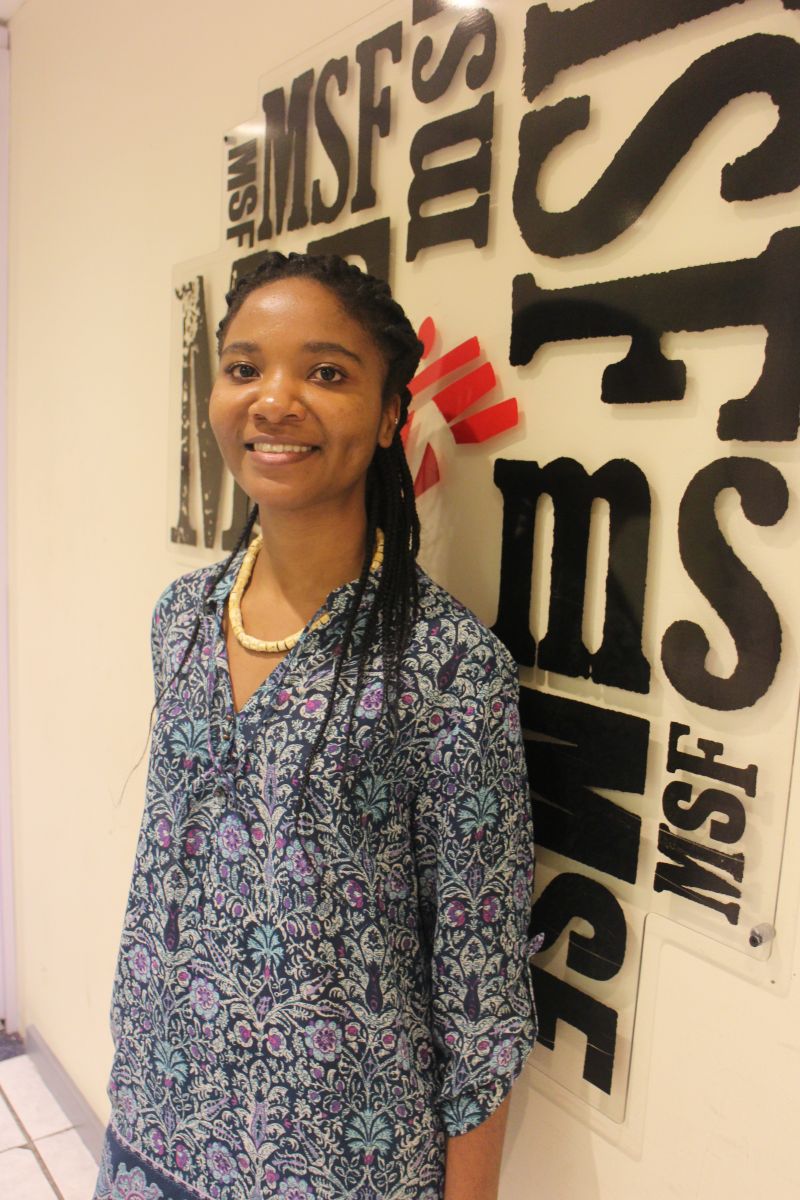Fezile Kanju, 28, from Acornhoek in Mpumalanga, recently started her nine-month long assignment with MSF in Pakistan. Her work as advocacy manager focuses on improving maternal and child healthcare and access to treatment for hepatitis C in two different provinces. Curiously, being there has also highlighted for her the impact of xenophobic violence in South Africa.

Large numbers of people in Pakistan remain cut off from basic, quality medical care. “There are many reasons for this, including that the public health services are poorly resourced and only a handful of people can afford to pay for healthcare in the private sector.”
The maternal and newborn mortality rate in Pakistan is high. Women regularly die from preventable complications during pregnancy and neonatal care is inaccessible for many. With a maternal mortality rate of 170 per 100,000 live births and an under-five child mortality rate of around 86 deaths per 1,000 live births, Pakistan is among the countries with the highest rates of maternal and infant mortality.
One of the reasons for this major challenge is that over 75% of all deliveries take place at home whilst skilled personnel attend to only about 20% of them.
“Lack of access to healthcare in remote rural areas are some reasons why women cannot access quality care. Many women are forced to go to makeshift facilities closer to their homes with no health practitioners, which puts their own and their babies' lives at risk,” explains Fezile. “Inadequate infrastructure and high insecurity contribute to why a lot of medical professionals do not commit to working in these areas.”
MSF continues to support provincial and district health authorities in responding to some of the country’s most urgent needs.
"Improving healthcare for mothers, babies and young children is a priority for MSF in Pakistan"
In Khyber Pakhtunkhwa, Fezile will develop an advocacy strategy to improve women’s access to safe, quality maternal and child healthcare. On 18 May 2016, the MSF-run Peshawar Women’s Hospital, dedicated to women in rural areas of northeastern Pakistan, marked its fifth anniversary.
In addition to challenges around maternal and childcare, Pakistan also has the second highest hepatitis C infection rate worldwide. This means that Fezile also works in the Sindh province where MSF is piloting a decentralised model of care to explore and present an alternative way of reaching patients who don’t have funds to access tertiary care for hepatitis C treatment.
Fezile is also realising that as an advocacy manager, it’s important to listen and to really understand an issue before talking or debating on it. One debate she recently engaged in highlighted that the most common perception of international people in Pakistan is that culture and religion are some reasons why women struggle to access healthcare and to be recognised as active members of society. However, she has found this to be an easy way out of acknowledging that most of the country's struggles are for recognition and gaining control and an identity free of external political bullying on approaches to carrying out initiatives.
Despite this being Fezile’s first MSF field assignment, she has previously worked with MSF Southern Africa’s Dr Neil Aggett Unit as a training, networking and programme officer. She joined the office in 2011 and engaged with different universities on numerous humanitarian issues, including access to medical care within migration contexts.
Based on her work experience, Fezile stresses that policymakers need to acknowledge major crises, such as ongoing wars and unliveable living conditions that push people to flee to South Africa and other countries.
“Governments have the responsibility to put effective systems in place to ensure people, including refugees, asylum seekers and migrants, can access essential resources for everyday life, like healthcare,” she adds. “Ignoring the needs of people fleeing into South Africa in desperate need for dignified survival as well as the poverty many South Africans experience is a recipe for xenophobic violence.”
In Pakistan, Fezile says she sometimes fears to say she is South African because during xenophobic attacks in South Africa a lot of Pakistani nationals are also targeted and their shops looted.
Find out more about MSF's work in Pakistan